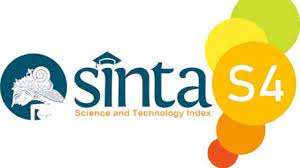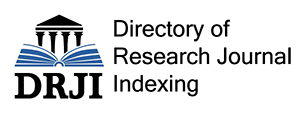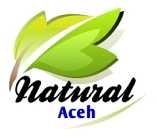Policy Reflection: Kurikulum Merdeka as Educational Innovation in the Era of Society 5.0
DOI:
https://doi.org/10.51276/edu.v5i2.915Keywords:
Curriculum Implementation , Education Innovation , Merdeka Curriculum , Society 5.0Abstract
Kurikulum Merdeka represents Indonesia's strategic response to the demands of Society 5.0, an era marked by pervasive technology integration. As an educational innovation, it aims to cultivate future-ready individuals adept at utilizing technology, possessing competitiveness, and providing innovative solutions for society. The curriculum emphasizes developing 21st century skills like critical thinking, creativity, and digital literacy through student-centered, project-based learning and formative assessments. Key opportunities include nurturing an adaptable, tech-savvy workforce and aligning education with industry needs. However, challenges arise in teacher readiness for constructivist pedagogy, technological competence, and the need for continuous curriculum updates. Successful implementation requires enhancing teacher training, providing adequate technological infrastructure, and fostering multi-stakeholder collaboration in curriculum design and evaluation. Policy reflection is crucial to optimize Kurikulum Merdeka's responsiveness to Society 5.0's rapid changes. By addressing opportunities, overcoming obstacles, and ensuring industry relevance, Indonesia can effectively prepare its youth to thrive in an increasingly digitalized world while driving sustainable societal progress. Proactive policy measures can position the education system as a catalyst for innovation and human capital development in the Society 5.0 landscape..
Downloads
Metrics
References
Ardianti, Y., & Amalia, N. (2022). Kurikulum Merdeka: Pemaknaan Merdeka dalam Perencanaan Pembelajaran di Sekolah Dasar. Jurnal Penelitian Dan Pengembangan Pendidikan, 6(3), 399-407. https://doi.org/10.23887/jppp.v6i3.55749 DOI: https://doi.org/10.23887/jppp.v6i3.55749
Bahadoran, Z., Mirmiran, P., Kashfi, K., & Ghasemi, A. (2022). Scientific Publishing in Biomedicine: Information Literacy. International Journal of Endocrinology and Metabolism, 20(3), 1-8. https://doi.org/10.5812/ijem-128701 DOI: https://doi.org/10.5812/ijem-128701
Bawadi, S., Novaliyosi, N., Pujiastuti, H., Yuhana, Y., & Hendrayana, A. (2023). Implementing Teacher and Student Independent Curriculum in Mathematics Learning: Systematic Literature Review. JIIP - Jurnal Ilmiah Ilmu Pendidikan, 6(1), 602–609. https://doi.org/10.54371/jiip.v6i1.1292 DOI: https://doi.org/10.54371/jiip.v6i1.1292
Brudermann, T., Aschemann, R., Füllsack, M., & Posch, A. (2019). Education for Sustainable Development 4.0: Lessons Learned from the University of Graz, Austria. Sustainability, 11(8), 2347. https://doi.org/10.3390/su11082347 DOI: https://doi.org/10.3390/su11082347
Bungawati, B. (2022). Peluang dan Tantangan Kurikulum Merdeka Belajar Menuju Era Society 5.0. Jurnal Pendidikan, 31(3), 381–388. https://doi.org/10.32585/jp.v31i3.2847 DOI: https://doi.org/10.32585/jp.v31i3.2847
Cooper, C., Booth, A., Varley-Campbell, J., Britten, N., & Garside, R. (2018). Defining the process of literature searching in systematic reviews: A literature review of guidance and supporting studies. BMC Medical Research Methodology, 18(1), 85. https://doi.org/10.1186/s12874-018-0545-3 DOI: https://doi.org/10.1186/s12874-018-0545-3
Fitriana, N., Widarti, H. R., & Agustina, N. I. (2023). Indonesian Education Trends Towards the Era of Society 5.0: Improving the Quality of Human Resources. Education and Human Development Journal, 8(3), 41–51. https://doi.org/10.33086/ehdj.v8i3.5199 DOI: https://doi.org/10.33086/ehdj.v8i3.5199
Hadi, A., Marniati, M., Ngindana, R., Kurdi, M. S., Kurdi, M. S., & Fauziah, F. (2023). New Paradigm of Merdeka Belajar Curriculum in Schools. AL-ISHLAH: Jurnal Pendidikan, 15(2), 1497–1510. https://doi.org/10.35445/alishlah.v15i2.3126 DOI: https://doi.org/10.35445/alishlah.v15i2.3126
Hamdi, S., Triatna, C., & Nurdin, N. (2022). Kurikulum Merdeka dalam Perspektif Pedagogik. SAP (Susunan Artikel Pendidikan), 7(1), 10-17. https://doi.org/10.30998/sap.v7i1.13015 DOI: https://doi.org/10.30998/sap.v7i1.13015
Hasanah, A., & Haryadi, H. (2022). Tinjauan Kurikulum Merdeka Belajar dengan Model Pendidikan Abad 21 dalam Menghadapi Era Society 5.0. GHANCARAN: Jurnal Pendidikan Bahasa dan Sastra Indonesia, 266–285. https://doi.org/10.19105/ghancaran.vi.7595 DOI: https://doi.org/10.19105/ghancaran.vi.7595
Indarta, Y., Jalinus, N., Waskito, W., Samala, A. D., Riyanda, A. R., & Adi, N. H. (2022). Relevansi Kurikulum Merdeka Belajar dengan Model Pembelajaran Abad 21 dalam Perkembangan Era Society 5.0. EDUKATIF: Jurnal Ilmu Pendidikan, 4(2), 3011-3024. https://doi.org/10.31004/edukatif.v4i2.2589 DOI: https://doi.org/10.31004/edukatif.v4i2.2589
Khozin, K., Haris, A., & Asrori, A. (2021). Pengembangan Integrasi Kurikulum. TADARUS, 10(1), 84-94. https://doi.org/10.30651/td.v10i1.9090 DOI: https://doi.org/10.30651/td.v10i1.9090
Komalasari, M. D., & Apriani, A.-N. (2023). Integration of the Living Values Education Program (LVEP) in the Merdeka Curriculum. Elementary School: Jurnal Pendidikan dan Pembelajaran Ke-SD-An, 10(1), 61-69. https://doi.org/10.31316/esjurnal.v10i1.4084 DOI: https://doi.org/10.31316/esjurnal.v10i1.4084
Maulidya, W. S., & Indriani, N. (2024). Pengembangan Kurikuklum Merdeka Belajar di Era Society 5.0. Jurnal Edukasi Sumba (JES), 7(2), 61–68. https://doi.org/10.53395/jes.v7i2.462 DOI: https://doi.org/10.53395/jes.v7i2.462
Mbato, C. L. (2019). Indonesian EFL Learners’ Critical Thinking in Reading: Bridging the Gap between Declarative, Procedural and Conditional Knowledge. Jurnal Humaniora, 31(1), 92-101. https://doi.org/10.22146/jh.37295 DOI: https://doi.org/10.22146/jh.37295
Muarifin, M. (2022). Soft Skill Learning Device for Elementary School Students through the Learning of Physical Education in Merdeka Curriculum. Journal of Science and Education (JSE), 3(2), 196–205. https://doi.org/10.56003/jse.v3i2.174 DOI: https://doi.org/10.56003/jse.v3i2.174
Nofridasari, E. A., & Hidayati, D. (2024). Transformasi Digital dan Penguatan Karakter Pancasila di Sekolah Dasar: Strategi Era Society 5.0. Jurnal Pendidikan Dasar, 14(2), 30–36. https://doi.org/10.21009/jpd.v14i2.38890 DOI: https://doi.org/10.21009/jpd.v14i2.38890
Nurzen, M. (2022). Teacher Readiness in Implementing the Merdeka Curriculum in Kerinci Regency. Edunesia : Jurnal Ilmiah Pendidikan, 3(3), 313-325.. https://doi.org/10.51276/edu.v3i3.424 DOI: https://doi.org/10.51276/edu.v3i3.424
Pratama, R. A., Saputra, M. A., Pratiwi, I. M., & Lestari, N. I. (2022, January). Student Teachers’s Readiness to Face Society 5.0 Challenges: Are They Ready to Teach with Competencies Needed?. In Universitas Lampung International Conference on Social Sciences (ULICoSS 2021), 470-476. Atlantis Press. https://doi.org/10.2991/assehr.k.220102.061 DOI: https://doi.org/10.2991/assehr.k.220102.061
Priantini, D. A. M. M. O., Suarni, N. K., & Adnyana, I. K. S. (2022). Analisis Kurikulum Merdeka dan Platform Merdeka Belajar untuk Mewujudkan Pendidikan yang Berkualitas. Jurnal Penjaminan Mutu, 8(02), 243–250. https://doi.org/10.25078/jpm.v8i02.1386 DOI: https://doi.org/10.25078/jpm.v8i02.1386
Shadiev, R., & Wang, X. (2022). A Review of Research on Technology-Supported Language Learning and 21st Century Skills. Frontiers in Psychology, 13, 897689. https://doi.org/10.3389/fpsyg.2022.897689 DOI: https://doi.org/10.3389/fpsyg.2022.897689
Suhandi, A. M., & Robi’ah, F. (2022). Guru dan Tantangan Kurikulum Baru: Analisis Peran Guru dalam Kebijakan Kurikulum Baru. Jurnal Basicedu, 6(4), 5936-5945. https://doi.org/10.31004/basicedu.v6i4.3172 DOI: https://doi.org/10.31004/basicedu.v6i4.3172
Triwiyanto, T., & Prasojo, L. D. (2019). Meta-analysis of the impact of globalization on national education policy. In The 4th International Conference on Education and Management (COEMA 2019), 166-173. Atlantis Press. https://doi.org/10.2991/coema-19.2019.36 DOI: https://doi.org/10.2991/coema-19.2019.36
Wang, Z., Guan, M., Lan, J., Yang, B., Kaizuka, T., Taki, J., & Nakano, K. (2022). Classification of Automated Lane-Change Styles by Modeling and Analyzing Truck Driver Behavior: A Driving Simulator Study. IEEE Open Journal of Intelligent Transportation Systems, 3, 772–785. https://doi.org/10.1109/OJITS.2022.3222442 DOI: https://doi.org/10.1109/OJITS.2022.3222442
Wasilah, N., Marno, M., Nur, M. A., Soleh, A., & Handayani, N. A. (2023). Optimalisasi Pengelolaan Sarana dan Prasarana dalam Implementasi Kurikulum Merdeka. JIIP - Jurnal Ilmiah Ilmu Pendidikan, 6(12), 10964–10971. https://doi.org/10.54371/jiip.v6i12.3582 DOI: https://doi.org/10.54371/jiip.v6i12.3582
Wigati, I., Yuniar, & Lestari, W. (2023). Community Resistance to Online Learning Policies During Covid-19 Pandemic in Education. Pedagogia : Jurnal Pendidikan, 11(1), 1–14. https://doi.org/10.21070/pedagogia.v11i1.1486 DOI: https://doi.org/10.21070/pedagogia.v11i1.1486
Windayanti, W., Afnanda, M., Agustina, R., Kase, E. B. S., Safar, M., & Mokodenseho, S. (2023). Problematika Guru Dalam Menerapkan Kurikulum Merdeka. Journal on Education, 6(1), 2056-2063. https://doi.org/10.31004/joe.v6i1.3197 DOI: https://doi.org/10.31004/joe.v6i1.3197
Yadrovskaia, M., Porksheyan, M., Petrova, A., Dudukalova, D., & Bulygin, Y. (2023). About the Attitude Towards Artificial Intelligence Technologies. In E3S Web of Conferences, 376, 05025. EDP Sciences. https://doi.org/10.1051/e3sconf/202337605025 DOI: https://doi.org/10.1051/e3sconf/202337605025
Downloads
Published
How to Cite
Issue
Section
License
Copyright (c) 2024 Yohanes Redan Langoday, Nurrahma Nurrahma, Syamsul Rijal

This work is licensed under a Creative Commons Attribution-NonCommercial-NoDerivatives 4.0 International License.












































